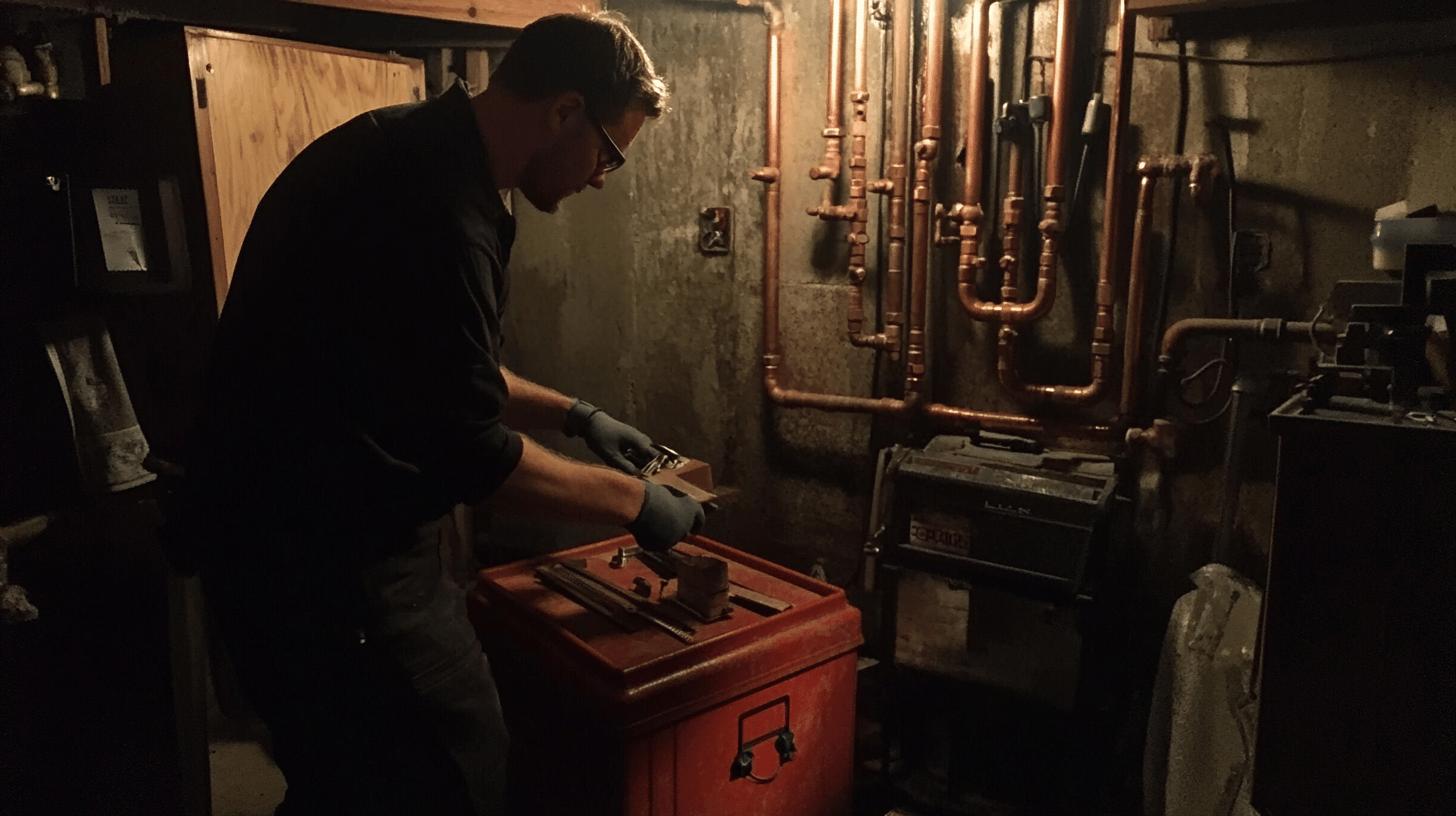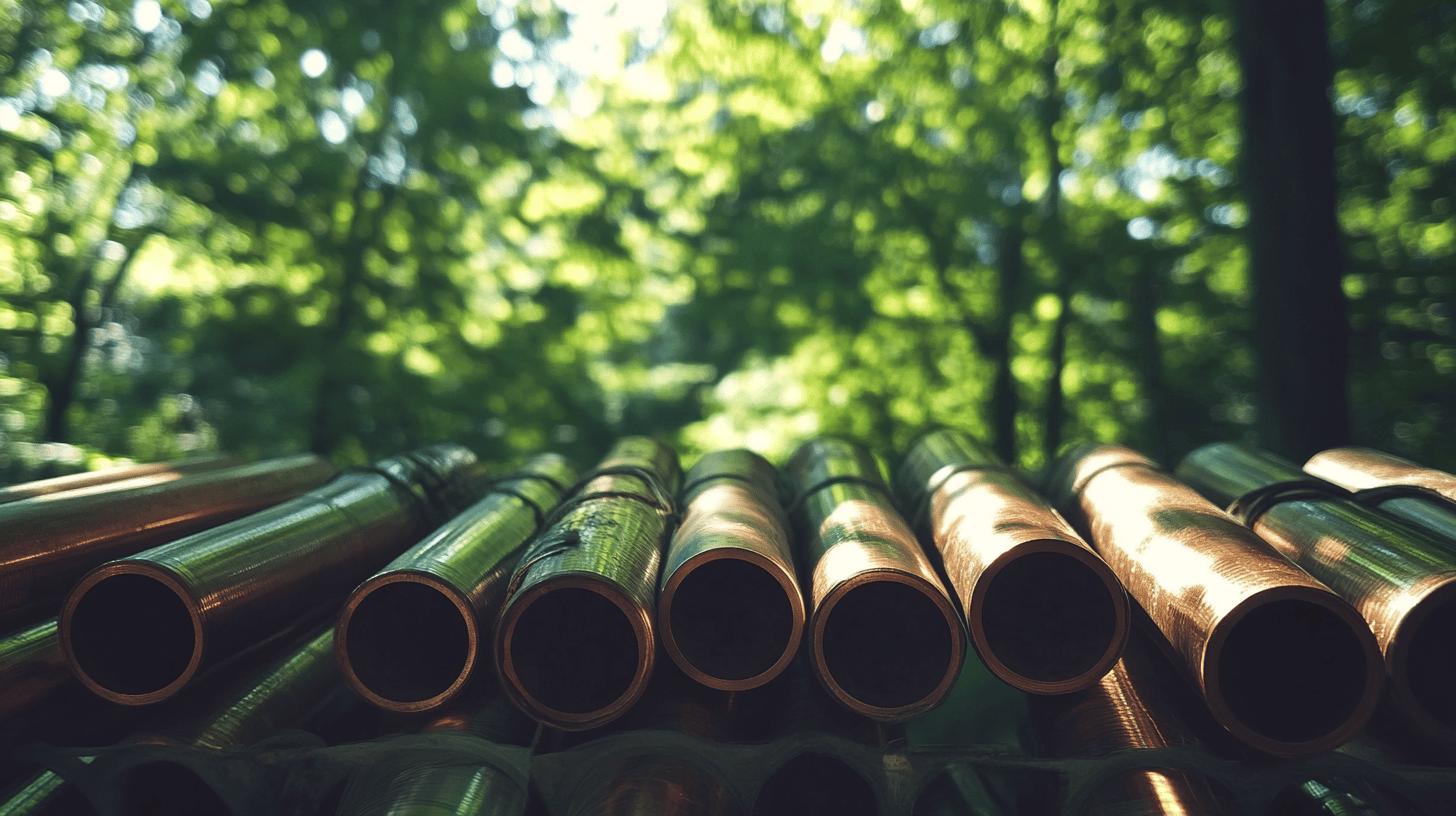TL;DR:
- Copper Pipes: Higher cost, very durable (50+ years), requires skilled installation, withstands extreme temperatures.
- PVC Pipes: Lower cost, durable (25-40 years), easier installation, not suitable for high temperatures.
- Cost Analysis: PVC has cheaper materials and easier installation; consider long-term maintenance and longevity.
- Environmental Impact: Copper is recyclable but has mining impacts; PVC is energy-efficient but not biodegradable.
- Consult a Plumber: Important for assessing water conditions, costs, and maintenance needs before deciding between copper and PVC.
Are your copper pipes getting old, and are you thinking about switching to PVC? Deciding between copper and PVC isn’t just about the price—each has its own pros and cons. In this article, we’ll go over the key differences between these two plumbing materials to help you make a smart choice. We’ll look at things like durability, maintenance needs, and environmental impact, giving you the info you need to see if replacing your copper pipes with PVC is the right move for your home.
Comparing Copper and PVC Pipes: Which is Better for Your Home?
When it’s time to replace pipes in your home, it’s important to compare copper and PVC. Each material has its own advantages and disadvantages that impact costs, installation, and whether they’re the right fit for your specific needs.
| Feature | Copper | PVC |
|---|---|---|
| Cost | Higher | Lower |
| Durability | Very durable, over 50 years | Durable, 25-40 years |
| Installation | Requires skilled labor | Easier, less labor-intensive |
| Temperature Resistance | Withstands extreme temperatures | Not suitable for high temperatures |
Copper pipes are known for being long-lasting and reliable. They resist corrosion and can handle high temperatures, making them great for any water application. This durability can increase your home’s value and give you peace of mind. However, the higher cost and need for professional installation might be tough for those on a budget.
On the other hand, PVC pipes are a more affordable option. They’re lightweight, easy to install, and resist corrosion, which makes them practical for many homes. However, they can’t handle high temperatures, so they’re limited to cold water lines and waste systems. Their low cost and ease of installation are great for DIY projects or quick replacements, but they don’t offer the same level of assurance as copper in tough situations.
Ultimately, choosing between copper and PVC comes down to your needs, budget, and plumbing conditions. Talking to a professional plumber can give you valuable insights to help you make the best decision for your home.
Cost Analysis: Replacing Copper Pipes with PVC

If you’re considering swapping copper for PVC, the initial costs are a big factor. PVC pipes are generally cheaper than copper because the materials are less expensive and the installation is easier and doesn’t require as much skill. On the flip side, copper pipes are more costly due to the higher price of the materials and the need for skilled labor, which involves soldering or brazing to ensure a secure fit.
- Material Costs: Copper is more expensive.
- Labor Costs: PVC installation is simpler.
- Project Scale: Bigger projects highlight cost differences.
- Existing Infrastructure: Compatibility can affect costs.
- Local Market Prices: Prices can differ by region.
Switching to PVC can have long-term financial effects. The initial savings are obvious, but it’s important to think about how long the materials last and maintenance costs. Copper can last over 50 years, providing long-term value even though it’s pricier upfront. In contrast, PVC typically lasts 25 to 40 years, which might mean you’ll need to do repairs or replacements more often. Talking to a plumber can help you weigh these factors to find the most cost-effective solution for your situation.
Durability and Maintenance: Copper vs PVC
Copper pipes are known for their impressive lifespan of over 50 years. They can handle different water temperatures, making them dependable for both hot and cold water. On the other hand, PVC pipes usually last 25 to 40 years and are durable, but they struggle with high heat, so they’re best for cold water applications.
When it comes to maintenance, copper pipes resist corrosion, which means you won’t have to check them as often. However, in areas with aggressive water or acidic soil, regular inspections might be needed. PVC pipes are easy to maintain, and it’s simple to check for leaks thanks to their straightforward design. Just keep in mind that frequent heat exposure could mean you’ll need to replace them sooner.
- Presence of Leaks: Frequent copper leaks may mean replacement.
- Temperature Needs: PVC isn’t for hot water lines.
- Budget Constraints: PVC is more affordable initially.
- Water Quality Concerns: Copper ensures water purity.
- Environmental Conditions: PVC suits non-corrosive places.
- Longevity Goals: Copper is a long-term investment.
Environmental Impact of Copper and PVC Pipes

Copper is a natural material that can be recycled without losing its quality. This helps reduce the need for new mining, although the initial mining and production processes can still disrupt ecosystems and contribute to greenhouse gas emissions. While recycling copper lessens these effects, it doesn’t eliminate them completely.
On the other hand, PVC production is less energy-intensive than copper, making it seem more eco-friendly. However, PVC isn’t biodegradable, which creates challenges for disposal and adds to long-term waste. Recycling PVC can help reduce its environmental impact, but it doesn’t fully address the concerns related to its lifecycle.
Consulting a Professional Plumber for Pipe Replacement
Choosing between copper and PVC can have a big impact on your plumbing. A professional plumber can give you personalized advice based on your specific situation. If you’re thinking about replacing copper pipes with PVC, a plumber will assess your water temperature, pressure, and the condition of your current pipes. Their expertise will help ensure that your choice meets both your functional needs and your budget.
- What is the current state of my copper pipes?
- Are there conditions making PVC a better fit?
- How do regional water factors affect choice?
- What are long-term maintenance implications of each?
Getting professional advice helps avoid pitfalls, leading to better decisions balancing short-term savings and long-term reliability.
Final Words
Knowing the differences between copper and PVC pipes is key to making smart choices for your home plumbing. Copper pipes are durable and handle high temperatures well, but they can be pricey and tricky to install. In contrast, PVC pipes are more affordable and easier to install, but they may not work well in high-heat situations.
When you’re thinking about replacing pipes, keep in mind both the upfront costs and the long-term financial implications. PVC usually costs less at first, but consider how long each type lasts and the maintenance involved. Copper pipes tend to last longer, while PVC requires less upkeep.
If you’re environmentally conscious, it’s important to weigh the recycling benefits of copper against the sustainability issues of PVC. Finally, talking to a professional plumber can help you get advice tailored to your situation, making it easier to decide if switching from copper to PVC is the right move for you. Choosing the right material will help ensure your plumbing system stays reliable and lasts a long time.
FAQ
Should I replace copper pipes with PVC?
Replacing copper pipes with PVC can make sense if cost is a primary concern. PVC is affordable, easier to install, and does not corrode. However, it can’t handle high temperatures like copper.
What is the best pipe to replace copper with?
PEX is often considered the best replacement for copper pipes due to its flexibility, ease of installation, and ability to handle various temperatures. It’s more versatile compared to PVC.
Why do plumbers not use copper anymore?
Plumbers may avoid copper mainly due to its higher cost and the skilled labor required for installation. Modern materials like PEX are quicker and cheaper to install, offering an attractive alternative.
What are the disadvantages of PVC pipe?
PVC pipes can become brittle over time and aren’t suitable for high-temperature applications. Additionally, PVC is not biodegradable, posing environmental concerns in terms of disposal.

